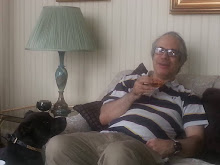Having three blogs now will explain why if you only check one they may not update as often as before, as they are now split between fraud, information and then anything else goes on here. They're all on my profile here so can check them directly.
Being a therapist one of our foundations is not being judgemental. But of course we are both human, and although we don't express any judgement doesn't mean there isn't any. But then again there is another area treated like judgement but is actually a motivation to encourage certain people to help themselves as no one else can help them as well as they can. There are a few areas in particular, whatever the research we can all (especially those of us who do it for a living) find exceptions, with the main one for me being addiction. Now the amazingly surprising news has been revealed Peaches Geldof probably indeed did die of the dare I say top option of a fashionable heroin overdose, twitter and other places have been going mad divided by people for and against. To me it represents the entire area, and can say that addicts go through three stages, the pre-addiction phase when they aren't yet aware they are addicted, the full blown stage where they live for their addiction at the expense of everything else, and really don't care about it, and the recovery stage when they realise they have a problem and want to stop.
Until stage three then we can't do a thing, as the rule in both counselling and Buddhism is you can't help people who are content as they are. They may be abusing themselves, and certainly those around them, but they are introspective and only concerned with their next hit, as if they are in an actual trance. Once they reach the recovery point then they either succeed or fail, and that's where the judgement comes in. The rule here is it really is a lot easier to not do something than to do it. Otherwise you would hear people being accused of being addicted to breathing or drinking water. The things we need to do to survive are clearly not the same as addiction, as we'd die sooner or later if we stopped eating and drinking, so by denying ourselves food as anorexics we are addicted to not eating as we have to eat to live a healthy life. So that's an inverse addiction as the urge to eat is so strong it takes an addict to override it. So technically an addiction is an addiction however it expresses itself, and the question is to me, how can any urge to do something once you know it's harmful be too strong to overcome? Using hypnosis I am aware, whether or not I can fix it, there is a feeling before giving in to an addiction, an illusion that you won't be able to relax unless you do it. Until stage three you give it no thought, and neither know nor care you are hurting yourself and others, so are not treatable. But once you do and still do it, is it fair to be judgemental then in order to provide the extra energy for the person to get better, where they clearly can't on their own?
I am not a parent but understand parenting, and that is the approach you would use when treating addicts, a parent loves their children and wants the best for them, and as a result neither allows their children a free run at the sweetshop however much they would eat, as they know it would hurt them, and ditto with heroin, cigarettes or gambling. The fact parents have no training in treating mental health issues means they usually fail, but their motivation is both genuine and often judgemental, but in what I see as a positive way. A therapist cannot stop someone doing something, only they can. We can provide foundations for dealing with other problems as they generally work from previous trials, but only an individual can control their own actions. Therefore once you both know that action is negative and harmful, and the desire (except with a very few short term physical addictive chemicals) is a total illusion, then how many times do they make the same mistake before you start to judge them as responsible for their own actions and not an illness?
I would say based on past experience no one is not strong enough to stop doing anything, therefore if they don't after many times intending to, it is their own choice. If for example their children suffer as they are not looked after as the parent is drunk or high, then are they judgmental for wanting to be fed when their parent is lying on the floor unconscious? We are not living as isolated units, and our deliberate behaviour does not just hurt us, but nearly always hurts others, from the wasted time of NHS staff and those they can't treat as they are treating your overdose, or your children who are hungry as you gambled away their lunch money. Isn't accepting that sort of behaviour actually collusion with the addict and only acts to encourage them and say 'it's an illness, nothing you do is your fault even if you kill your child indirectly as a result'? I don't think so. I would say classifying a gambling addiction along with cancer is an insult to people with cancer, as you can't use will power to cure an illness, but thousands of people stopped smoking and drinking either suddenly or gradually as total addicts where others did not. It is not like passing an exam where some will simply not have the capacity to do it, but simply not doing something harmful.
I leave the opinions to the readers.
Subscribe to:
Post Comments (Atom)

No comments:
Post a Comment